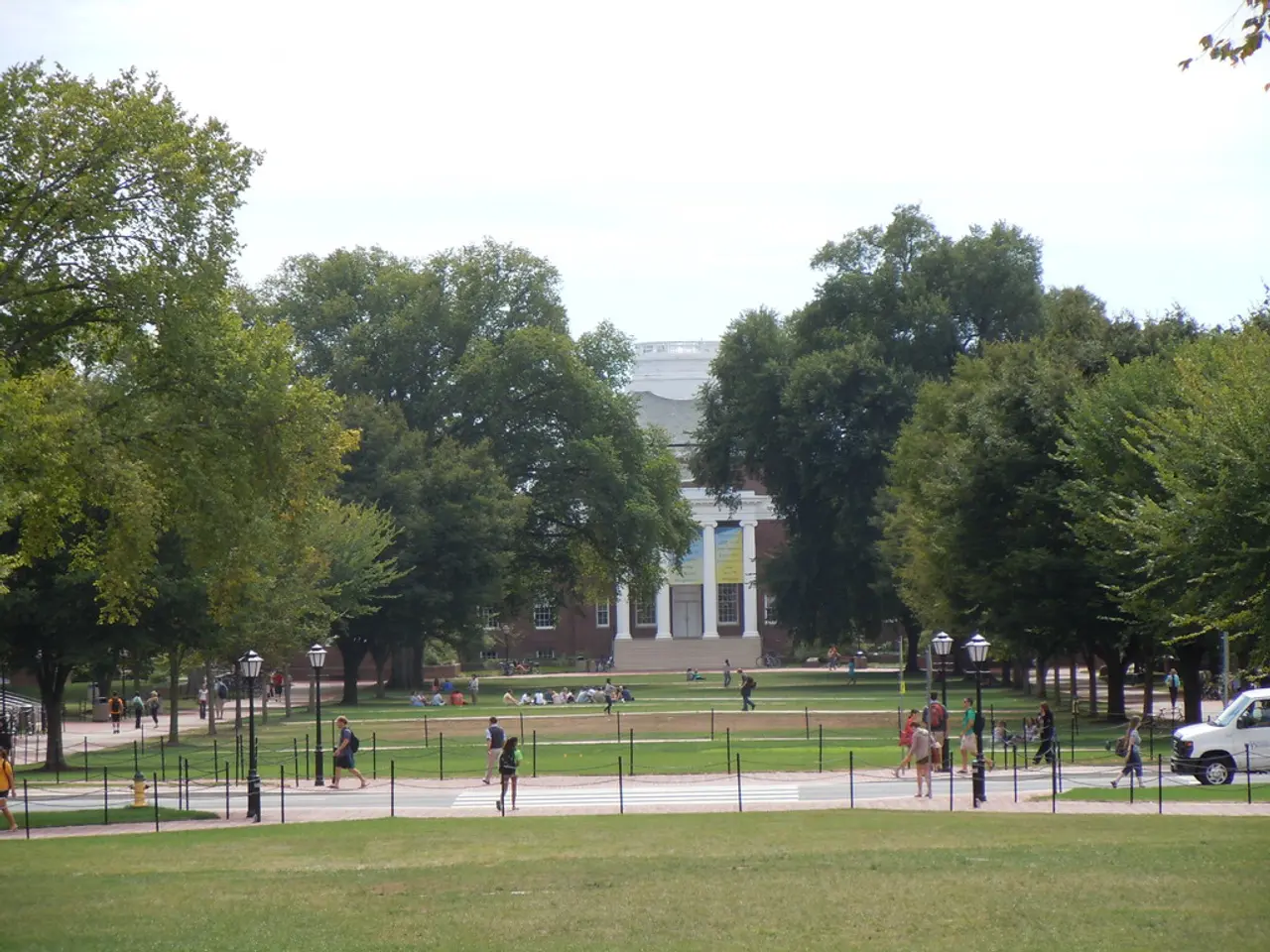Campuses in Crisis Worldwide: A Wide-Ranging Review of Education Systems' Accountability
In the contemporary world, higher education is grappling with a complex array of issues that are reshaping its landscape.
Rising University Costs and Waning Belief in Relevance
The cost of university education has been on the rise in many places, raising questions about the value-for-money equation of a university degree. Simultaneously, a waning belief among large segments of society in the relevance and value of universities has added to the challenge.
State-Level Threats to Academic Autonomy in the US
In the United States, legislative actions have imposed restrictions on academic freedom, with over 70 bills and policies introduced across 26 states. These laws have constrained classroom teaching, restricted diversity, equity, and inclusion initiatives, undermined faculty governance and tenure, manipulated accreditation, and imposed neutrality mandates that silence important speech. Nearly 40% of the U.S. population is now in states affected by such censorship laws, marking a significant curtailment of academic autonomy at the state level.
International Student Mobility: A Crucial Driver
While responses vary globally, international student mobility continues to be a crucial driver in higher education. European countries follow diverse strategies, with Germany remaining welcoming to international students, while the Netherlands has introduced recent restrictions. Asia is emerging as a significant force, with countries like Japan, China, India, Malaysia, and South Korea actively pursuing internationalization through streamlined visa policies, scholarships, and skill-gap-focused education programs.
Funding for Research Under Pressure
Funding for research, especially lifesaving research, faces pressure from federal actions in the U.S., which have been criticized for devastating impacts. This trend aligns with broader resource constraints faced by institutions, who also grapple with enrollment and retention challenges.
Embracing Technological Innovation
Higher education institutions are embracing technological innovation, particularly AI, to enhance learning experiences and institutional efficiency. This shift is occurring amidst constrained resources and rising expectations, suggesting a strategic pivot in operational and pedagogical approaches rather than direct policy changes on funding.
Protecting Universities and Renewing Public Understanding
Universities must do a significantly better job of communicating the value they bring to their students and the societies where they operate. Protecting universities means renewing the public's understanding of their purpose and worth in a moment of disruption. Universities must recommit to the values upon which academic institutions have been built, including critical thinking and intellectual pluralism.
Governmental Actions Affecting Academic Freedom
In several countries, governments have taken steps to reduce academic freedom, such as Hungary's 2018 reorganisation of the Hungarian Academy of Sciences. Many other countries are altering their university policies, with a clear trend being the introduction of barriers to international student mobility. Restrictive measures have been deployed by governments in Australia, the Netherlands, the United Kingdom, and Canada.
The US Government's Impact on Higher Education
The US government has introduced policies that question the university model developed since the Second World War, including cutting federal research grants and contracts by over $11 billion. The US government proposed a tiered tax regime on university endowment income, potentially increasing rates up to 21 percent for wealthier institutions.
Universities Facing Criticism and Resistance
Universities are being attacked for perceived double standards, such as defending freedom of speech for some but not for others. Universities face challenges in being depicted as taking sides or deploying biased admissions criteria, particularly those favoring the privileged. Universities have long provided substantial value to society, contributing significantly to knowledge production, local and national growth, and serving as engines of social mobility, cultural innovation, and democratic participation.
Notable Actions Against Universities
The most high-profile action was the revocation of Harvard University's SEVP certification, temporarily barring it from enrolling international students.
In summary, academic autonomy is being challenged through direct political interventions and legislative measures aimed at controlling academic content and governance structures. Universities must understand they are being judged on their merits and should be willing and ready to delineate their value at every opportunity. The landscape of higher education is undergoing a significant transformation worldwide, with governments implementing policy changes that often face resistance from academic institutions.
- The waning belief in the relevance and value of universities, as well as the impacts of political interventions and legislative measures on academic autonomy, can be linked to the broader discourse on education-and-self-development.
- The politics of higher education becomes evident when considering governmental actions affecting academic freedom, such as the US government's policy changes and the revocation of Harvard University's SEVP certification, which fit into the realm of general-news.




